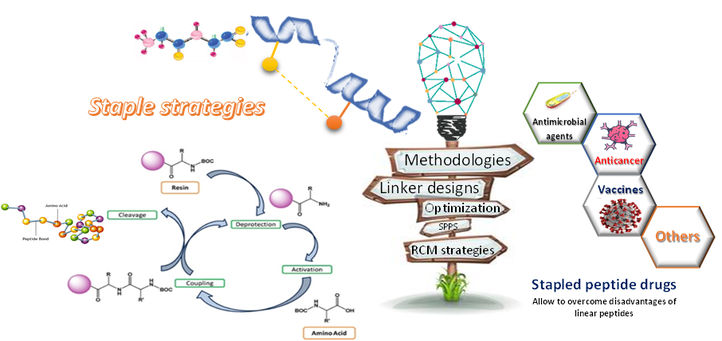Dr. Atiruj Theppawong
CV
Atiruj Theppawong obtained his PhD in Chemistry at Ghent University (Faculty of Bioscience Engineering). His PhD research was supported by Erasmus Mundus (LOTUS+) project which allowed him to complete his PhD research under the supervision of Prof. Dr. Ir. Matthias D’hooghe and Prof. Dr. Ir. John Van Camp at Ghent University on the topic of “Synthesis and first line in vitro evaluation of novel curcumin derivates as anti-tumoral agents”
He continued his academic career as postdoctoral collaborator under the supervision of Prof. Dr. Annemieke Madder. His research topic focused on the design and synthesis of therapeutic stapled peptides. His project was supported by the Research Foundation – Flanders (FWO).
Research Project
Synthesis and Optimization Strategies of Bioengineered Cyclic Peptides for Improving Therapeutic Drug Profiles
Among the several advantages that peptides offer over small molecules, one can list greater efficacy, larger surface areas, better target surface recognition, potential for increased selectivity, specificity (limited non-specific binding to molecular structures other than the desired target) and a large potential chemical space. Macrocyclisation is an essential process in drug discovery and this is also the case in peptide chemistry. It is an efficient method to restrict peptide conformation, increase proteolytic stability, reduce polarity, enhance bioavailability and subsequently improve drug like properties. Peptide cyclisation is often achieved through the amino acid side chain functionalities for the stabilisation of specific loop or helical conformations, a method often referred to as peptide stapling. Considering a peptide drug’s poor permeability in the gut, we envisioned the use of a non-peptide bile acid-based scaffold for peptide cyclisation along with simultaneous improvement of oral bioavailability and stability in blood serum.
